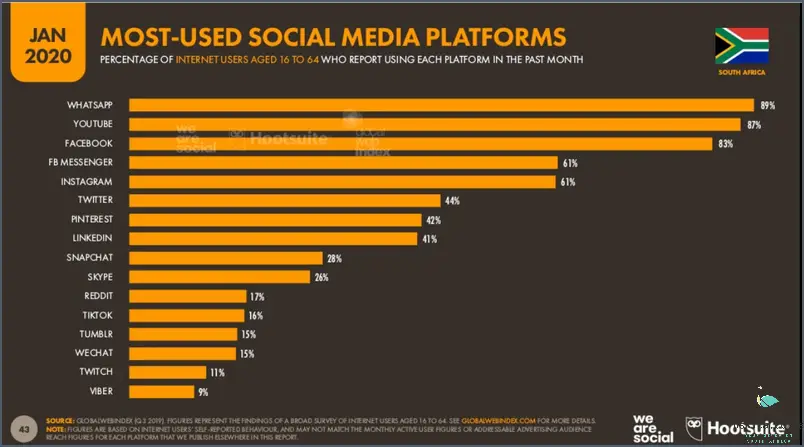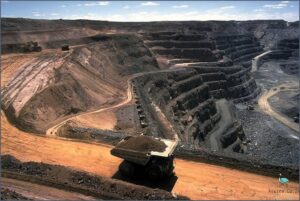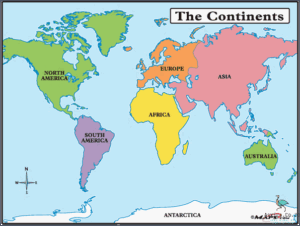
The media in South Africa is highly regulated, with the government playing an important role in controlling its content. The South African government controls the media, broadcasting and telecommunications industry through a variety of laws and regulations. The South African Broadcasting Corporation (SABC) is the public broadcaster, and it is accountable to the Minister of Communications. Private broadcasters are also subject to regulatory control, with the Independent Communications Authority of South Africa (ICASA) responsible for licensing and regulating broadcasters. Newspaper and other print media are not subject to the same level of regulation, but the government does have the power to regulate content through the Films and Publications Board. The Department of Communications is responsible for setting policy for the media in South Africa.
Contents
Who Control The Media In South Africa
The South African media landscape is dominated by several large media companies, such as Naspers, Primedia, Media24, and Caxton. These conglomerates control the majority of South African newspapers, magazines, television and radio services, and digital media outlets. The South African Broadcasting Corporation (SABC) is the country’s main public broadcaster and is government-owned. It is predominantly funded by license fees and advertising, and it is required to provide content that is representative of South Africa’s multicultural population. Private radio stations and television channels are allowed to operate in South Africa but are tightly regulated by the Independent Communications Authority of South Africa (ICASA). In addition, the Media Development and Diversity Agency (MDDA) was created to promote media diversity and news content that is in the public interest. Overall, the media landscape in South Africa remains heavily concentrated in the hands of a few major companies, with government regulatory bodies ensuring that media content is fair and balanced.
Overview of the major media ownership groups in South Africa
The media landscape in South Africa is dominated by a handful of large media ownership groups. These groups are responsible for the majority of media content, from newspapers and television to radio and online media. Understanding who owns South Africa’s media is important for understanding how news and information is disseminated in the country. In this blog post, we’ll provide an overview of the major media ownership groups in South Africa and explore how they shape the media landscape.
The most significant media ownership group in South Africa is Naspers. Naspers is a South African multinational conglomerate, and is the largest internet and media company by market capitalization in Africa. They own a number of South African newspapers and magazines, including the Daily Sun, Sunday Times, and The Citizen. Naspers also owns a variety of digital media outlets, including the popular South African news site News24.

The second-largest media ownership group in South Africa is M-Net. M-Net is a pay television service owned by MultiChoice, a subsidiary of Naspers. M-Net has a variety of channels, including M-Net Movies, M-Net Series, and M-Net City, which broadcast a mix of local and international content. They also own a number of South African radio stations, including Kaya FM, Jacaranda FM, and East Coast Radio.
The third-largest media ownership group in South Africa is Primedia Broadcasting. Primedia Broadcasting is a radio broadcasting company, owned by the South African media group Primedia. They own a variety of radio stations, including Talk Radio 702, KFM, and 5FM. Primedia also owns a number of television channels, including e.tv and eNCA.
The fourth-largest media ownership group in South Africa is eMedia Investments. eMedia Investments is a media company owned by the South African media mogul Iqbal Survé. They own a variety of newspapers and magazines, including the Cape Times and Independent Online. eMedia Investments also owns a number of radio stations, including KFM and Heart FM.
Finally, the fifth-largest media ownership group in South Africa is Media24. Media24 is a subsidiary of the South African media group Naspers. They own a variety of newspapers and magazines, including the Sowetan, Beeld, and Rapport. They also own a number of digital media outlets, including News24 and Fin24.
These five media ownership groups are responsible for the majority of media content in South Africa. They shape the media landscape in the country and influence how news and information is disseminated. It is important to understand who owns South Africa’s media and how they influence the media landscape.
Review of the South African Broadcast Corporation

The South African Broadcast Corporation (SABC) is the public broadcaster of South Africa and is the country’s largest broadcaster. Established in 1923, the SABC has been a major player in the South African media landscape for nearly a century. As the public broadcaster, the SABC has a monopoly on terrestrial television and radio broadcasting in South Africa, and also operates a number of digital radio stations and streaming services.
The SABC is funded largely through the sale of advertising and a government grant, and is primarily accountable to the South African government. This has raised concerns about the potential for government interference in the SABC’s operations, and indeed, the South African government has a history of using the SABC to propagate its own agenda and suppress criticism or dissent.
The SABC is also responsible for setting content and programming standards for other broadcasters in South Africa, a role that has been criticized for being overly restrictive and biased. The SABC has been accused of censoring news stories deemed to be critical of the government, as well as of giving preferential treatment to certain political parties.
Despite these criticisms, the SABC remains the largest broadcaster in South Africa and is a major source of news and entertainment for the country’s citizens. The SABC is viewed as an important source of national identity, and its programming has been credited with helping to bridge the cultural divides that have historically existed in South Africa.
Ultimately, it is clear that the SABC has a significant degree of control over the media in South Africa. While this control may have been used to suppress dissent and promote certain political views in the past, the SABC is also responsible for providing a vital source of news and entertainment to millions of South Africans. As such, the SABC’s influence and control should be used responsibly and transparently, in order to ensure that the South African public is able to access quality, unbiased media.
Discussion of the impact of media ownership on the news and entertainment landscape in South Africa

The impact of media ownership on the news and entertainment landscape in South Africa is a topic that has been widely debated in recent years. With a population of over 56 million people and a diverse mix of cultures, South Africa has always had a vibrant media industry. However, with the recent consolidation of media ownership, it is becoming increasingly difficult for media consumers to access unbiased and quality information.
In the past few decades, media ownership in South Africa has become increasingly concentrated. A handful of companies now control the majority of the news and entertainment landscape in the country. This has resulted in a lack of diversity in the media landscape and limited access to unbiased news and entertainment.
The consolidation of media ownership has also had a negative impact on the quality of content being produced. As the media landscape becomes more restricted, the need to produce content that appeals to the largest possible audience becomes more important. This often leads to a decrease in the quality of the content, as the focus shifts to catering to the most popular demographic.
Moreover, the consolidation of media ownership has also led to a decrease in the diversity of perspectives being presented in the media. Many media outlets are now owned by the same companies, resulting in a homogenization of perspectives and ideas. This has resulted in a decrease in the quality of the news and entertainment being produced, as the originality and creativity of the content is often compromised.
Ultimately, the impact of media ownership on the news and entertainment landscape in South Africa has been largely negative. The consolidation of media ownership has led to a decrease in the quality and diversity of content being produced, and a decrease in the access to unbiased news and entertainment. It is essential for media consumers to be aware of these issues and to actively seek out unbiased and quality content in order to ensure that their news and entertainment needs are being met.
Conclusion
The South African media landscape is a complex one, with a variety of different players and interests involved. There is no one single answer to the question of who controls the media in South Africa. Instead, it is a complex and ever-changing landscape in which different players have different levels of influence and control.




